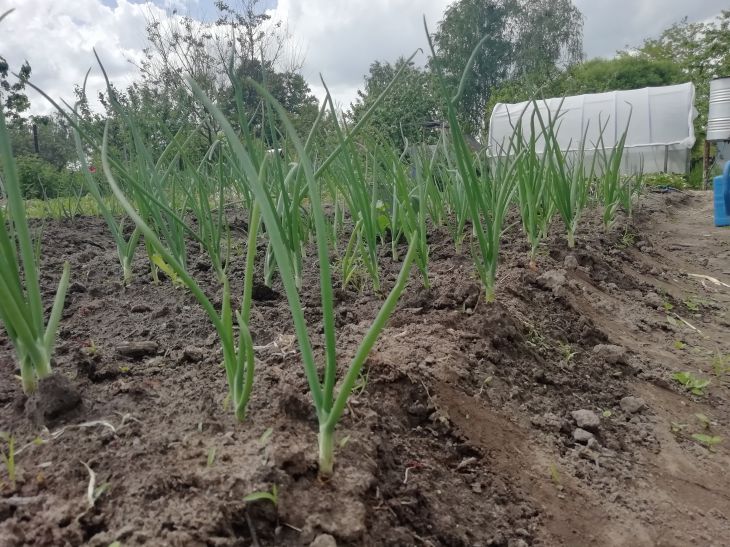Onions are a demanding crop that requires special attention when fertilizing. Incorrectly selected fertilizers may not only be of no use, but also cause serious harm to plants.
Gardeners often make mistakes by using unsuitable fertilizers, which leads to the death of crops or a significant reduction in yield.
Knowing what you absolutely cannot fertilize onions with will help you avoid common mistakes and grow a healthy and abundant harvest.
Fresh manure
Using fresh manure to fertilize onions is one of the most common and dangerous mistakes.
Unrotted manure contains a lot of nitrogen in an easily digestible form. Because of this, plants actively build up green mass, which negatively affects the formation of bulbs. In addition, fresh manure can cause burns to the root system and become a source of various diseases.

Chlorine-containing fertilizers
Onions are extremely sensitive to chlorine, so using chlorine-containing fertilizers can cause serious problems.
Chlorine has a negative effect on the development of the root system, slows down plant growth and worsens the taste of bulbs. Instead of chlorine-containing fertilizers, preference should be given to sulfate forms.
High doses of nitrogen fertilizers
Excess nitrogen leads to excessive growth of green mass to the detriment of bulb formation.
In addition, excess nitrogen nutrition reduces the shelf life of onions and makes them more susceptible to diseases.
Nitrogen fertilizers should be applied sparingly and stopped one month before harvest.
Fresh organics
In addition to fresh manure, it is not advisable to use other types of fresh organic matter - compost, humus or green fertilizers. They can become a source of various pathogens and attract pests.
Organic fertilizers must be well rotted and applied in advance, no later than the autumn of the previous year.
Wood ash in large quantities
Although wood ash is a valuable source of potassium and trace elements, its excessive use can harm onions.
Excess ash leads to a sharp increase in soil pH, which negatively affects the absorption of nutrients by plants. Ash should be used moderately, no more than 100-150 g per square meter.
Mineral fertilizers without taking into account the soil composition
Applying mineral fertilizers without first analyzing the soil can lead to nutrient imbalances.
Excess of some elements can block the absorption of others, which will negatively affect the development of plants. Before applying fertilizers, it is recommended to conduct an agrochemical analysis of the soil and draw up a fertilizing plan taking into account the results obtained.
Earlier we talked about how to feed watermelons .








